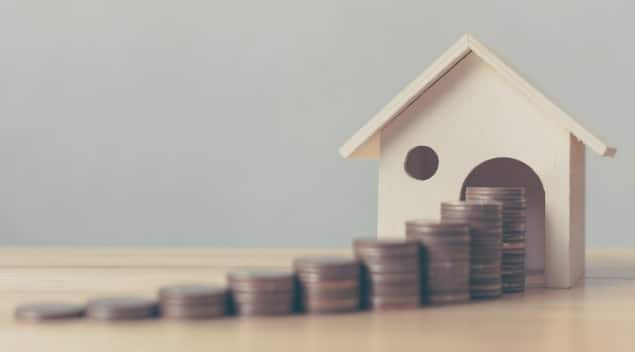
5 Questions To Ask Before Investing In A House
So you want to begin your property investment portfolio but you don’t know where to start? Join the rest of Australia! In today’s society there is still no avenue for teaching children and young adults about wealth creation and financial freedom.
Some may stumble across a business opportunity, or perhaps investing in shares, but our go-to vehicle is real estate. Real estate is a long game that has the potential to provide generational legacy wealth, if done correctly.
To set yourself apart from the 99% of investors who fail, you need to ask these 5 questions before investing in a house.
DO YOU WANT TO BE AN EMPLOYEE OR AN INVESTOR?
Do you have what it takes to be an investor? One of the greatest setbacks that most people experience from the education system is the lack of knowledge about how to become financially abundant. Many people enter adulthood without the understanding of taxes or even a basic budget.
School teaches you to be an employee – you trade your time for income. In comparison, investors dive into the real estate game because it allows them to make a steady and increasing income from their property portfolio.
We need employees, that is how society has been built to function. However, you don’t need to succumb to this ‘majority’ and the fact you are here reading this article is proof that you have what it takes to escape the rat race.
Property investment is a fantastic wealth creation vehicle because it is underpinned by the philosophy that profits are better than wages.
Trading your life for money is okay to some, but for the other side there comes a time in life when they’re ready to work less hours for someone else, to concentrate on other things they love while still getting paid.
The answer to this equation is real estate.
The goal of property investment
The goal of property investors in the market is to target optimistic returns.
If you fully accept that profits are better than wages, it will serve you well for a lifetime. Understand that companies, banks and institutions are all hunting profits and that they’re all hunting in the same safari park as you – the Australian property market.
Yes, learning how to create your own profits comes with time and experience but the payoff is worth it.
Why everyone doesn’t invest in property
If property investing is such a smart and lucrative profit making machine then why don’t more people do it? The reality is that for most, owning multiple properties simply feels out of reach.
On top of this, many don’t know where to begin when it comes to creating long-term sustainable wealth for themselves.
You must seek the knowledge you never got
You would think that in the developed country of Australia, wealth creation would be passed down from one generation to the next and these invaluable lessons would find themselves in the education system!
However, very few people obtain the necessary education to make sound financial decisions. For many Australians, the success that is ‘making money’ is entirely misunderstood and seems unattainable.
So, we actually have to seek the knowledge as we grow.
WHAT IS YOUR FINANCIAL FREEDOM NUMBER?
The next question you want to answer before investing in a house is, ‘what is your number?’ This is the big critical question that everyone needs to answer and that is ‘how much money do you need to die?’
Drilling down to specifics is vital in property investment. Knowing exactly how much money you need to live the life you want – whether that be a shorter working week, giving up work entirely, or being able to have one more holiday a year – will enable you to get there that much quicker.
Decide what kind of life you want. Work out how much it costs. Then you will know how many properties you need, at what rent rates and capital growth, to get there.
Setting yourself up for retirement
If you’re planning to rely on the pension and your superannuation when you retire then you can expect to only be surviving not thriving. The pension is $36,000 per couple or $24,000 if you’re single and that is topped up by about $523,000 (approximate super amount by 65) that will need to last about thirty years.
One in four pensioners are living in poverty. A huge factor that determines those circumstances is the security of housing. Owning your home has shown to be a game changer in retirement as the cost of rent is substantial for someone on a pension.
Of course, the more real estate you own, the more secure you will be in the long term. Setting yourself up with a real estate investment strategy now means you’ll have more bases covered in case things go pear-shaped. By paying down the debts while you’re still working, you’ll be able to focus on living off the passive income throughout retirement.
HAVE YOU SET A BUDGET?
It’s time to get really clear on how you’re going to make your ‘magic number’ a reality and the best way to do this is through budgeting. Budgeting is about getting a clear picture of your incomings and outgoings so that you can determine how much you can save and invest each week. The key here is to get really specific – if you’re wanting to save $100k for a deposit, then break that plan down into bite size steps.
A simple and effective budgeting strategy is the 50/30/20 rule which is the idea that 50% of your income goes towards your needs, (mortgage, bills) 30% of your income goes towards entertainment and 20% needs to be invested into income producing assets.
If that is too conservative for you, then another great budgeting strategy is the 50/50 technique which is where you live off of 50% of your income. If you can do this, you will end up in a place where you can budget for anything.
However, it is important to note that your budget must be realistic so that you aren’t left feeling deprived. A sustainable budget should still allow for you to enjoy the indulgences of life that mean the most to you. You want to set yourself up for success.
Budgeting is an invaluable tool that will prove very useful before you invest in a house and it will become vital once you own that investment property.
ARE YOU RESISTING TO LIFESTYLE CREEP?
Whether you just landed a new job with a higher salary, a promotion at work or even a paid off car loan – it is normal to immediately start spending more money. Maybe now it’s time to order a five course meal or sign up with a personal trainer: you’ve earned it!
If you have ever had an increase in money enter and leave your life then you have become a victim to lifestyle creep. With the increased income you’ve elevated your lifestyle situation to match.
If you are not careful, you may wake up one day and realise you now use 16 different hair care products, you own a second car and you live in an apartment you can’t afford.
Don’t let this happen to you.
How to reverse an escalating lifestyle
- Cut back on the subscriptions – Make a list of your recurring memberships, such as those for streaming, gaming or even dating! Weed out the ones you don’t need.
- Declutter your closet – Go through your clothes and be brutally honest about what you have not worn in the past six months. Get rid of it.
- Replace goods – If it’s possible, replace items that are currently too expensive for you, such as your car (petrol, maintenance) or the place you rent.
- Make mindful choices – Pay attention to where you money goes and ensure you think through a purchase in depth before buying.
ARE YOU PREPARED FOR THE LONG-TERM GAME?
Real estate is a long-term game. The longer you hold onto your property, the more money you will make as you ride the wave of market inflation.
There are too many investors that buy a property and expect it to go up $100k overnight. The property market doesn’t work that way. The saying ‘good things take time’ is relevant to playing the real estate game – the longer you’re in it, the more likely you’ll win it.
The key question you need to ask yourself before investing in a house is, “are you prepared to hold your property for more than just a couple years?” This is the basis to a successful property investment strategy, however it does come with some challenges.
Do the numbers
If you want to be able to hold onto your real estate for long enough to create significant wealth then you will need to understand the financials associated with it. At a basic level, you will need to be across cash flow, rental income, maintenance fees and taxes.
The next step is to ensure you have a significant buffer for unexpected expenses that may arise. Taking time to analyse your real estate and do the maths will ensure you’re prepared for every eventuality and can go the distance.
Rental return is key
Charging enough rent to cover your debt, expenses and to even save to renovate down the track is the ideal solution. This will allow you to hold onto your property for the time it needs to grow in value. It is therefore very important to make sure your rents can continue to increase each year.
The major factors that influence rents are:
- Tenants – Choosing tenants who earn good incomes and are able to sustain rises in rent is vital.
- Location – Ensure you buy in an area that is on the trajectory of growth to ensure there is always a demand for rentals.
- Liveability – If the area offers tenants things like modern, well-maintained services, great outdoor spaces, and convenient, high-end social outlets, people will pay more to live there.
- Being a good landlord – Respond to maintenance needs quickly and give decent notice for inspection tol help make your tenants feel valued. This will make them less likely to object to an annual rent increase.
Invest in your investment
If you’re in it for the long haul then it is important to look after your property. If you do not live close by, you will need to employ a property manager. Take your time to research companies and find one that truly cares about your investment success. Peace of mind that your real estate is being taken care of is invaluable.
ONLY THE EXPERTS CAN ANSWER YOUR INVESTMENT PROPERTY QUESTIONS
So there you have it, the 5 questions to ask before investing in a house. Do not be alarmed if these questions prompted a thousand more. It is said that it takes 10,000 hours to master a skill. No one is expecting you to become an expert after reading this article.
Any successful property investor understands that they don’t need to be an expert in tax law, location scouting or budgets, but they do need to know where to find the people that are experts in those areas.
This is where our team of coaches and mentors can help you on your way to becoming one of the one per cent. The one percent of Australians who are successful property investors.
If you want to start building your own team of experts, then come along to our free real estate investing seminar. This jam-packed two hour event will give you all the information you need to start out in property investment, and you will be able to ask questions to our specialist team.
Recent Articles
Building a $100k Passive Income Stream Through Property: The ‘Property Stacking’ Method Explained
Discover how to build a $100K passive income stream through property using the proven Property Stacking Method. Learn the three core principles smart Australian investors are using to scale their portfolios faster — without financial stress.
Investment Property Financing – Comprehensive Guide 2023
You won’t get very far as an investor without the ability to secure credit. Understanding how to...
Ultimate Property Investment Strategy Guide 2023
Which Property Investment Strategies Will Make You Money? Building your property investment...
How to Build a Property Portfolio with $100k or Less
Starting your property investment journey can seem daunting. There’s lots to research and plenty...
How To Develop Good Financial Habits That Lead To Wealth!
Good financial habits are the basis to creating wealth. Building financial freedom is not something you learn overnight, it takes time and a foundation of solid habits that you perform day in and day out.
The 7 Plans Every Property Investor Must Know To Succeed
When it comes to property investing as the saying goes, if you don’t have a plan, then you could be planning to fail! While there are many factors we can’t control in the market, there are certain facets we can manage to give us the best possible chance of success. In this article we will help you understand the 7 plans every property investor must know.
The Truth On How Many Investment Properties You Need To Retire
Using real estate to create financial security for the future is a popular option for many Australians, however it can be tricky to know how many investment properties you need to retire to get the outcome you desire.
What Is The Best Type Of Property Investment?
When you strive to learn everything you can about investing in property, you increase your chances of creating generational wealth! The best type of property to invest in is dependent on a number of factors about the investor and their real estate strategy.
The Property Investment Basics That You Need To Know
Real estate has the potential to become your main vehicle for creating wealth, but only if you take the time to learn some crucial property investment basics to set you up for success as an investor.












